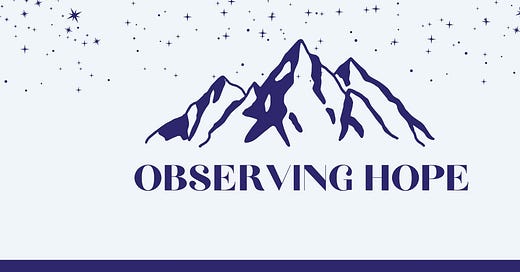Visting my grandparent’s house in Wisconsin is always a lesson in underconsumption. Both of them grew up during the Depression and learned from a very young age the value of reuse, upcycling, and self-sufficiency. My Grandma quilts and sews and my Grandpa gardened and did woodworking. Much of the house was built by him and is decorated with blankets and wall hangings from Grandma. While they lived the American Dream in many ways moving beyond the need to penny pinch, working as a school librarian and conservation soil scientist for the Department of Natural Resources, that spirit of underconsumption persists to this day.
An initial glance in their basement or storage room is mildly overwhelming due to a seeming excess of items in contrast with this spirit, but upon further inspection and discussion it becomes apparent that every object has a purpose. Glass jars are saved for reuse canning veggies from the garden. Boxes are repurposed as cabinet organizers. Clothing is renewed as cleaning rags. Everything lives a minimum of two lives before being composted, recycled, or donated.
It’s impossible to exist on social media and not see the recent increase in conversation about “underconsumption core” and “no buy years”. The recent movie on Netflix spurred the conversation, specfically around clothing.
I have been fascinated by this trend and as I reflect on my own sustainability goals, I am excited to see this conversation happening.
Around Thanksgiving I read this post by
about her experience doing a no buy year and the idea has been percolating in my mind. At the same time I read more climate related books recently, including What If We Get It Right? and Animal Vegetable Miracle, inspiring me to intentionally recommit to being concious about my actions and putting my money where my mouth is related to my social and environmental ethics.Following
’s method, I started by thinking more about my why for wanting to do a period of no buy.Think About Your Goals And Your “Why”
My goals include:
Reducing impulsive purchases. Instagram really knows me and I have been succumbing to ads for items I don’t really need and emails for sales I wouldn’t otherwise purchase from.
Consuming intentionally and ethically. As I have taken my first steps getting a salary in graduate school and saving money, I have realized the power our dollars have to make a difference. Making decisions with my money that align with my values (buying more locally than from Amazon, etc) feels better and makes me prouder to support small local businesses where possible.
Centering climate change and social ethics. The world is only going to face more challenges with climate change and while I will scream loudly everyday that over 60% of emissions come from less than 10 companies, individual actions do matter. Politically I will continue to fight for systemic changes, and individually I will also focus on making decisions to lower my emissions and make purchases that protect human life.
Connecting to my grandpa ❤️ Moving into the first calendar year without my beloved grandfather, I am reflecting on ways to honor his memory and stay connected. Few things make me think more of Grandpa than active protection of the environment and concious underconsumption. He spent his whole career fighting to protect water and soil quality in Wisconsin and to his dying breath loved this planet. The idea of time intentionally reusing and underconsuming, appeals because it feels like a direct, daily connection to him.
Determine My Rules
These are the categories for the no buy period I have settled on:
No new clothes (exceptions for PhD defense and graduation)
No new shoes (same exceptions as above)
No new home decor
No new hair or makeup products without finishing up what I already have
How It Will Work
Starting January 1, 2025 I will not be buying any item on the list above. I am going to run this experiment through April. My reasons for this time period are:
A year is too big of a commitment to make right now. Frankly it scares me and I’d have an easier time giving up. Four months is a reasonable period of time for this experiment. If it goes longer, great, but if not that’s okay.
I will be moving after graduation in May and will by necessity be buying house products and likely new work clothes etc.
Get Excited!
I am looking forward to this challenge and really being intentional about what I spend time and money on. I look forward to reporting back as time goes on and connecting with others who are on a similar journey this coming year.
If you enjoyed this post, please consider:
tapping the ❤️ icon below
tapping the 💬 and sharing if any of this resonated with you or if you are trying something similar
tapping the button below to share this post
Please note: I use affiliate links, which means if you make a purchase, I may get a small commission at no cost to you. Thank you for supporting Observing Hope!





Best of luck with your underconsumption goals! Living a nomadic life for a year and a half recently *really* helped me get into the "underconsumption" mindset. This has perhaps been a long struggle for me, having grown up in a home that borderlined on hoarder status (but of memorabilia and family mementos rather than perhaps the trash-filled images that may come to mind thanks to TV shows). As a nomad, owning so little that I knew everything that I had and exactly where it was in the backpack and suitcase I was travelling with turned out to feel remarkably liberating! You realize how little you actually need on the day-to-day to get by. The only downside was having to put my library of books into storage. I just can't seem to get into e-Books because I love the sensory experience of real books. :)